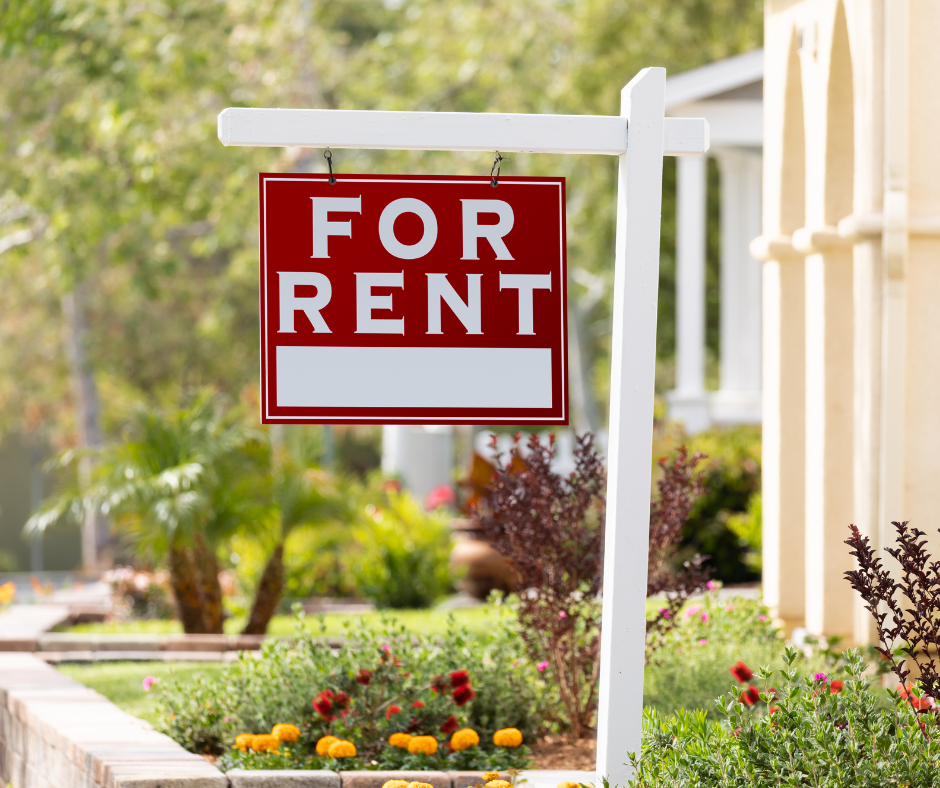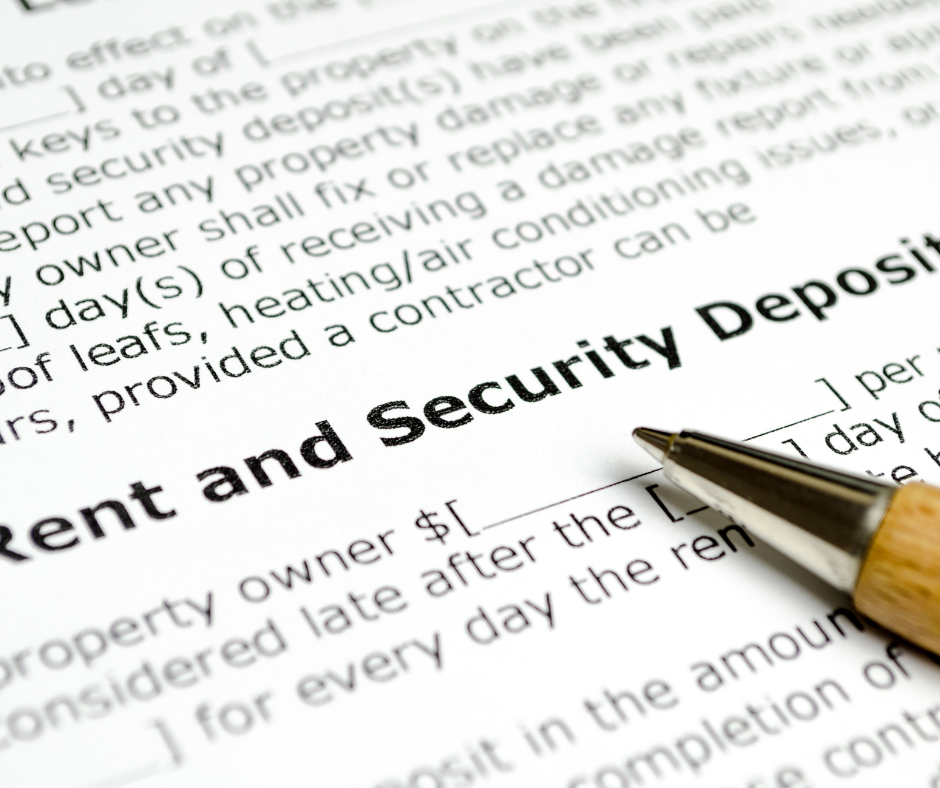Blog

It’s a common belief: you submit a maintenance request and—poof—someone should be at your door within the hour. The reality is that maintenance coordination involves multiple steps, legal responsibilities, human schedules, and a whole lot of moving parts that most people never get to see. Let’s walk through what actually happens behind the scenes when a maintenance request is submitted—why repairs sometimes feel instant, sometimes take a little longer, and what’s happening in the meantime.

Oregon Landlord-Tenant Law Series – Part 1 Managing rental property in Oregon means more than just collecting rent and fixing leaky faucets. It means understanding strict landlord-tenant laws. Two of the most important concepts you need to understand are: 1. The obligation of good faith 2. Proper service of legal notice These two principles show up in nearly every rental dispute, eviction, and court case. Here we break them down to help you protect your investment—and stay out of legal hot water.

Finding the perfect rental can be an exciting yet challenging task. With so many options available, it's important to have a clear plan and checklist to ensure you find a rental that meets all your needs. In this comprehensive house hunting checklist, we'll cover everything you need to consider when searching for your next home. Determine Your Budget Before you begin your search, it's crucial to determine your budget. Take some time to evaluate your income and expenses to determine how much you can comfortably afford to spend on rent. The general rule of thumb is to allocate no more than 30% of your gross income to housing expenses. However, this may vary depending on your location and individual circumstances. Consider using a rent calculator to get a better idea of what you can afford based on your location, desired number of bedrooms, and monthly income. This tool will provide you with a recommended rent figure and apartment options that fit your budget. Choose Your Ideal Location Next, narrow down your options by considering the location that best suits your needs. Ask yourself the following questions: How close do I need to be to work or school? Do I prefer a quiet neighborhood or a bustling city center? Are there specific amenities or attractions I want to be near? Are there any safety concerns in the area? How convenient is the neighborhood in terms of transportation and access to daily necessities? By answering these questions, you can identify the ideal location for your new home. Determine Your Must-Have Features Now it's time to determine the must-have features and amenities you're looking for . Consider the following factors: Size and Layout How many bedrooms and bathrooms do you need? Do you require a specific square footage or layout? Appliances and Utilities Are you looking for a fully equipped kitchen with modern appliances? Is in-unit laundry a necessity? Do you prefer utilities to be included in the rent or paid separately? Parking and Transportation Do you need a dedicated parking space or access to public transportation Is bike storage or a secure parking facility important to you? Pet-Friendly Policies Do you have pets or plan to get one in the future? Are there any restrictions or additional fees for pet-friendly rentals? Amenities and Community Features Are there specific amenities you desire, such as a pool, fitness center, or communal spaces? Do you prefer a pet-friendly community, on-site maintenance, or a secure building? Consider your lifestyle and prioritize the features that are most important to you. This will help you narrow down your options and find rentals that meet your criteria. Research Potential Neighborhoods Once you have an idea of the location and features you're looking for, it's time to research potential neighborhoods. Look into the safety of the area, proximity to essential services, and the overall vibe of the community. Consider factors such as nearby schools, grocery stores, restaurants, and recreational facilities. You can also reach out to current residents or explore online forums to get a better sense of the neighborhood's atmosphere and any concerns you should be aware of. Conduct In-Person Inspections Virtual tours can be helpful, but it's essential to conduct in-person inspections before making a final decision. Here are key areas to inspect during your visit: Condition of the Rental Examine the floors, walls, and ceilings for any signs of damage, leaks, or cracks. Check the doors and windows for proper functionality and security. Test the water pressure and temperature in the bathroom and kitchen. Appliances and Fixtures Ensure all appliances, such as the refrigerator, stove, and dishwasher, are in good working condition. Test light fixtures, electrical outlets, and heating/cooling systems. Storage Space Evaluate the available storage options, such as closets, cabinets, and additional storage units. Safety and Security Check for smoke detectors, carbon monoxide detectors, and fire extinguishers. Inquire about the building's security measures, such as surveillance cameras or secure entry systems. Parking and Outdoor Areas Assess the parking situation, including available spaces, assigned parking, or street parking. Explore any outdoor areas, such as balconies or communal spaces, for cleanliness and maintenance. Review Lease Terms and Policies Before signing a lease agreement, carefully review the terms and policies. Pay attention to the following details: Lease duration and renewal options Rent amount, due dates, and accepted payment methods Security deposit amount and refund policies Maintenance and repair responsibilities Pet policies and additional fees Subletting or roommate policies If you have any concerns or questions, don't hesitate to discuss them with the landlord or property manager before signing the lease. Consider Additional Costs and Expenses In addition to rent, it's important to consider any additional costs and expenses associated with renting the premises. These may include: Utilities such as electricity, water, gas, and internet Monthly parking fees or transportation costs Renter's insurance to protect your personal belongings Moving expenses, including hiring movers or renting a moving truck Factor in these costs when determining your overall budget and affordability. Trust Your Instincts Lastly, trust your instincts. If something feels off or doesn't align with your expectations, it's okay to continue your search. Finding the perfect rental takes time, but with a well-defined checklist and thorough inspections, you'll be more likely to find a rental that feels like home. Remember, renting any home is a significant commitment, so take your time and make an informed decision that aligns with your needs and preferences. Happy house hunting!

As a property owner, maintaining a steady flow of income from your rental properties is vital. One of the most effective ways to achieve this is by ensuring your rental property stands out from the crowd. In this comprehensive guide, we will explore the various strategies you can employ to increase your property's appeal and attract quality tenants. 1. First Impressions Matter: Enhance Your Curb Appeal 1.1. The Importance of Curb Appeal Curb appeal is the first impression your property gives to potential tenants. It's the attractiveness of your property from the street view. A well-maintained exterior not only attracts attention but also creates a positive impression about the upkeep of the rest of the property. 1.2. Improving Curb Appeal Improving your property's curb appeal doesn't have to be expensive. Mow the lawn, remove any debris, and trim overgrown bushes or trees. For a more vibrant look, consider planting colorful flowers. Additionally, ensure the entrance is inviting by painting the front door, replacing worn-out doorknobs, and adding a new welcome mat. 2. The Value of Natural Light: Upgrade Your Windows Windows play a significant role in the overall appeal of your rental property. They allow natural light into the property, making rooms appear larger and more inviting. Upgrading your windows not only improves visual appeal but also contributes to energy efficiency, a feature many tenants appreciate. 3. The Heart of the Home: Enhance Your Kitchen and Bathroom The kitchen and bathroom are two areas potential tenants pay close attention to. Ensuring these spaces are clean, well-maintained, and visually appealing can significantly increase your property's attractiveness. 3.1. Kitchen Upgrades In the kitchen, consider replacing worn-out appliances with newer models. If within your budget, upgrading countertops can also dramatically improve the room's look. 3.2. Bathroom Upgrades For the bathroom, ensure all fixtures are clean and functioning properly. Minor upgrades like replacing a faucet or showerhead can have a big impact on the room's overall appeal. 4. A Fresh Look: Repaint the Property A fresh coat of paint can work wonders in transforming the look and feel of your rental property. Stick to light and neutral colors to create a bright and spacious ambiance. Light shades reflect natural light, making rooms appear larger and more inviting. 5. Emphasize Unique Features Every property has unique features or amenities that make it stand out from others. Whether it's a spacious backyard, a modern kitchen, or a stunning view, highlighting these distinctive qualities can make your property more appealing to potential tenants. 6. Cleanliness is Key A well-maintained property showcases your commitment to providing a comfortable and hassle-free living experience. Ensure that your property is thoroughly cleaned before showing it to potential tenants. Bathrooms, kitchens, and floors should all be spotless. 7. Add Extra Amenities Offering additional amenities can make your property more attractive to potential tenants. These could include on-site laundry facilities, free internet, or even a dedicated parking space. These perks can serve as tie-breakers when a tenant is torn between two similar units. 8. Stage Your Property Staging your property can help potential tenants visualize themselves living there. You can hire a professional stager, or you can do it yourself by adding tasteful decorations and arranging furniture in a way that maximizes space and highlights the property's best features. 9. Address Maintenance Issues Promptly Addressing maintenance issues promptly is crucial in creating a positive impression on potential tenants. Ensure all appliances are in working order and fix any issues like leaky faucets or damaged walls. This not only demonstrates your commitment to maintaining the property but also helps prevent minor issues from turning into major problems down the line. 10. Hire a Property Manager Hiring a property manager will help you with marketing your rental make sure your property is competitively priced to attract quality tenants. In conclusion, making your rental property stand out involves a combination of aesthetic improvements, functional upgrades, and diligent maintenance. By implementing these strategies, you can increase your property's appeal, attract quality tenants, and maximize your rental income.

Managing rental properties can be a demanding and time-consuming task for landlords. From advertising vacancies to screening tenants, handling maintenance requests, and collecting rent, the responsibilities can quickly become overwhelming. That's where a professional property management company can make a significant difference. By hiring a property management company, landlords can alleviate the burdens of property management and enjoy a range of benefits that contribute to a successful and stress-free rental experience. 1. Advertising and Filling Vacancies One of the most time-consuming tasks for landlords is advertising vacancies and finding suitable tenants. Property management companies specialize in marketing rental properties effectively and screening potential tenants. By enlisting their services, landlords can save valuable time and ensure that their properties are filled with reliable and high-quality tenants. Property management companies have the expertise to craft compelling rental advertisements, utilize various marketing channels, conduct thorough tenant screenings, handle paperwork, and negotiate rental agreements. With their assistance, landlords can streamline the rental process and maximize their return on investment. 2. Handling Maintenance & Repairs Property management companies have a dedicated team of professionals who can handle maintenance and repair issues promptly and efficiently. This saves landlords the hassle of coordinating with contractors and ensures that their properties are well-maintained. Property management companies often have established relationships with reliable service providers, which can result in cost savings and expedited repairs. With a property management company taking care of maintenance and repairs, landlords can have peace of mind knowing that any issues will be addressed promptly, minimizing potential damages and tenant dissatisfaction. 3. Rent Collection Collecting rent from tenants can be a challenging task for landlords, especially when dealing with late payments or delinquencies. Property management companies can handle rent collection on behalf of landlords, ensuring that payments are made on time. They have streamlined systems in place to send out rent reminders, follow up on late payments, and enforce lease agreements. By relying on a property management company for rent collection, landlords can maintain a professional landlord-tenant relationship and avoid potential conflicts or awkward situations. 4. Legal Expertise Navigating the complex landscape of landlord-tenant laws and regulations can be daunting for landlords. Property management companies have in-depth knowledge of these laws and can provide valuable legal guidance. They can help landlords ensure compliance with rental property regulations, handle lease agreements, and address any legal issues that may arise. Property management companies can also handle the eviction process if necessary, ensuring that it is done legally and efficiently. By having a property management company with legal expertise on their side, landlords can protect their interests and minimize the risk of legal disputes. 5. Better Relationships With Tenants Maintaining positive relationships with tenants is crucial for a successful rental experience. Property management companies can serve as intermediaries between landlords and tenants, handling communication, addressing concerns, and resolving conflicts. By having a professional property management company as the point of contact, landlords can avoid personal involvement in difficult or sensitive situations. This can help preserve the landlord-tenant relationship and ensure a more harmonious living environment for tenants. 6. Financial Management Property management companies can also handle the financial aspects of rental properties. They can collect rent, keep track of expenses, and provide detailed financial reports to landlords. This ensures transparency and enables landlords to easily monitor their property's financial performance. Property management companies can also help landlords with budgeting, setting rental rates, and maximizing rental income. With their financial expertise, landlords can make informed decisions about their investments and optimize their returns. 7. Time and Stress Management Perhaps one of the most significant benefits of hiring a property management company is the time and stress it saves landlords. Property management is a demanding and time-consuming job that requires attention to detail and constant availability. By delegating these responsibilities to a professional property management company, landlords can free up their time and focus on other aspects of their lives or businesses. This can lead to reduced stress and improved work-life balance. 8. Local Market Knowledge Property management companies have extensive knowledge of the local rental market. They are familiar with market trends, rental rates, and tenant preferences. This expertise allows them to set competitive rental prices, attract quality tenants, and minimize vacancies. By leveraging their knowledge of the local market, property management companies can help landlords optimize their rental income and maximize the value of their properties. 9. Property Preservation and Maintenance Regular property inspections and preventive maintenance are crucial for preserving the value of rental properties. Property management companies have systems in place to conduct routine inspections, identify maintenance issues, and ensure timely repairs. By proactively addressing maintenance needs, property management companies can prevent small issues from escalating into costly repairs. This helps landlords avoid potential damages and ensures that their properties are well-maintained, which contributes to tenant satisfaction and retention. 10. Professional Network and Resources Property management companies have an extensive network of professionals and resources at their disposal. They have established relationships with contractors, vendors, and service providers in various areas, such as maintenance, repairs, landscaping, and more. This network enables property management companies to secure reliable and cost-effective services for landlords. By tapping into their professional network and resources, landlords can benefit from quality workmanship, competitive pricing, and efficient service.

Renting a home in the United States has seen significant shifts and challenges in recent years, particularly due to the impact of the COVID-19 pandemic. As we look ahead to 2024, it's crucial to understand the most current trends and insights shaping the rental market. In this article, we will explore the key factors influencing rental affordability, the impact of inflation on rental prices, the preferences of today's renters, and more. Let's dive into the latest data and expert analysis to gain a comprehensive understanding of the rental landscape. The Impact of Inflation on Rental Affordability Inflation has been a persistent concern in the U.S. economy, and its effects are felt across various sectors, including the housing market. Rising costs of materials, labor, and other factors have led to increased rental prices, making affordability a significant challenge for many renters. The constant stream of news and statistics about inflation can be overwhelming, but it's essential to grasp its implications for the rental market. According to Zillow Chief Economist Skylar Olsen, inflation plays a crucial role in driving up rental costs. As prices rise across the board, landlords pass on their higher expenses to renters, contributing to the cycle of inflation. This phenomenon has particularly impacted maintenance costs, repair expenses, and wages for workers involved in property upkeep. As a result, rental prices have been steadily increasing, posing a burden on renters' budgets. Rental Affordability and the State of the Market Rental affordability is a pressing concern nationwide, with many households struggling to find affordable housing options. Zillow's research shows that the rising cost of homeownership, especially in urban areas, has made renting a more attractive and financially viable option for many individuals. By splitting the cost of rent with roommates or family members, renters can access larger properties that meet their changing needs without breaking the bank. However, the state of rental affordability varies across the country. Zillow's comprehensive map of U.S. rental affordability reveals regional disparities, with some areas experiencing higher rental costs compared to others. It's crucial for renters to consider their budget, income, and local market conditions when searching for affordable rental options. Rental Market Trends and Pre-Pandemic Levels The rental market experienced significant disruptions due to the COVID-19 pandemic, with rent prices fluctuating and demand shifting. However, according to Zillow Senior Population Scientist Manny Garcia, the rental market is gradually returning to pre-pandemic levels. Rent growth, which reached its peak in 2022, has started to stabilize, offering some relief to renters. The impact of the pandemic on remote work and changing housing preferences has also influenced rental trends. As more individuals sought larger homes in suburban areas, rent prices in these regions increased, while urban areas experienced a slight decline. This migration pattern resulted in a net increase in rents, particularly in suburban locations. Construction Levels and New Housing Supply To address the growing demand for rental housing, construction levels have played a crucial role. Zillow's analysis of construction data indicates that multifamily construction in 2022 reached a 50-year high across the country. This increase in new housing supply is expected to contribute to the overall growth of the rental market while potentially bringing down rent growth rates. Moreover, many cities have implemented inclusionary housing policies, requiring a portion of new construction to be designated as affordable housing. This commitment to creating affordable housing options within new developments presents an opportunity to address the ongoing issue of rental affordability. Evolving Renter Preferences and Neighborhood Desires Understanding renter preferences and what individuals desire in their neighborhoods is key in shaping the rental market. Zillow's comprehensive research sheds light on these evolving trends and factors influencing rental decisions. According to Zillow, prospective renters are increasingly looking for studio and one-bedroom apartments, driving up demand for smaller, more affordable housing options. This shift reflects changing lifestyle preferences and the need for more flexibility in housing choices. Additionally, proximity to amenities, transportation options, and community features plays a crucial role in renters' decision-making process. Access to quality schools, parks, shopping centers, and cultural attractions are among the top considerations for individuals searching for a rental property. Rental Market Forecast for 2024 and Beyond Looking ahead to 2024, experts predict continued growth and evolving dynamics in the rental market. Moody's Analytics forecasts a shift in home prices, with some areas experiencing a decline, while others anticipate price increases. Albany, Georgia, Casper, Wyoming, and Columbus, Georgia, are among the cities expected to report the most significant rise in home prices in 2024. Rental market trends are projected to vary based on factors such as mortgage rates, inventory levels, and economic conditions. While rising mortgage rates may discourage or price out potential homebuyers, they are unlikely to create a buyer's market. Rent prices are expected to continue rising, driven by high demand and limited housing supply. Q3 Quarterly Insights Webinar and 2024 Renters Consumer Housing Trends Report To gain further insights into the rental market and stay up to date with the latest trends, Zillow offers a Q3 Quarterly Insights Webinar. This webinar provides valuable information about the future of the rental market and includes a preview of key findings from Zillow's 2024 Renters Consumer Housing Trends Report. The report delves into the preferences and behaviors of today's renters, offering valuable insights for both renters and industry professionals. To access more data and research from Zillow, visit their research page at zillow.com/research. By staying informed about the rental market and understanding the factors shaping it, renters can make informed decisions and navigate the evolving landscape effectively. In conclusion, the rental market in the United States is undergoing significant changes and challenges. Rental affordability, the impact of inflation, evolving renter preferences, and supply and demand dynamics all play critical roles in shaping the market. By staying informed and understanding the latest trends and insights, renters can navigate the rental landscape successfully and find their ideal housing solutions in 2024 and beyond.

As a property management company, attracting quality tenants is essential for the success and profitability of your business. High-quality tenants not only pay their rent on time but also take care of the property and adhere to lease agreements. They contribute to positive cash flow and minimize the risk of property damage or disruptions. In this comprehensive guide, we will explore effective strategies to attract quality tenants to your rental properties. 1. Define Your Target Tenant Before embarking on a tenant acquisition journey, it is crucial to define your target tenant profile. Consider factors such as demographics, lifestyle, income level, and preferences. Understanding your ideal tenant will help you tailor your marketing efforts and property offerings to appeal to this specific audience. 2. Optimize Your Online Presence In today's digital age, having a strong online presence is key to attracting quality tenants. Start by creating a professional and user-friendly website for your property management company. Ensure that your website is well-organized, visually appealing, and provides essential information about your services and available properties. Utilize search engine optimization (SEO) techniques to improve your website's visibility in search engine results. Conduct keyword research to identify relevant keywords and incorporate them naturally into your website content. This will increase the chances of your website being found by potential tenants searching for rental properties in your area. Additionally, claim and update your business listings on popular online directories and platforms, such as Google My Business. Provide accurate and detailed information about your company and properties to enhance your credibility and make it easier for potential tenants to find and contact you. 3. Craft Compelling Listings When listing your rental properties, invest time and effort into creating compelling and informative property listings. Start with attention-grabbing headlines that highlight the key features and benefits of the property. Use descriptive language to paint a vivid picture of the property and its surroundings. Include high-quality photos and, if possible, virtual tours or videos that showcase the property's unique selling points. Visual content significantly enhances the appeal of your listings and allows potential tenants to envision themselves living in the space. Ensure that your listings provide all relevant details, such as rental price, property size, amenities, and lease terms. Highlight any unique features or upgrades that set your property apart from the competition. Clear and concise information helps potential tenants make informed decisions and encourages them to reach out for more information. 4. Enhance Property Maintenance Maintaining your rental properties in excellent condition is essential for attracting quality tenants. Regularly inspect and address any maintenance issues to ensure that the properties are safe, clean, and in good working order. Well-maintained properties create a positive impression and demonstrate your commitment to providing a comfortable living environment for tenants. Consider investing in preventive maintenance measures to minimize potential issues and extend the lifespan of the property's components. Implement routine inspections, cleaning schedules, and maintenance plans to proactively address any potential problems before they escalate. Promptly respond to maintenance requests from tenants and provide efficient solutions. Effective communication and timely repairs contribute to tenant satisfaction and encourage long-term lease renewals. 5. Implement Rigorous Tenant Screening Thorough tenant screening is crucial for selecting quality tenants who will uphold their lease agreements and take care of the property. Develop a comprehensive screening process that includes background checks, credit history analysis, income verification, and reference checks. Screening potential tenants allows you to assess their rental history, financial stability, and suitability for your properties. Look for a consistent record of timely rent payments, positive references from previous landlords, and stable employment or income sources. Adhere to fair housing laws and ensure that your screening process is consistent and unbiased. Treat all applicants equally and base your decisions on objective criteria and relevant rental qualifications. 6. Provide Excellent Customer Service Delivering exceptional customer service is a fundamental aspect of attracting and retaining quality tenants. Maintain open lines of communication and promptly respond to inquiries, concerns, and maintenance requests from tenants. Clear and effective communication builds trust and fosters positive relationships with tenants. Ensure that your property management team is trained to provide professional and courteous service. Demonstrate empathy, understanding, and a willingness to assist tenants with their needs. Going above and beyond to meet tenant expectations creates a positive reputation for your property management company and encourages tenant loyalty. Implement convenient and modern communication channels, such as online portals or mobile apps, to streamline tenant interactions and provide easy access to important information and services. 7. Leverage Referrals and Word-of-Mouth Marketing Harness the power of referrals and word-of-mouth marketing to attract quality tenants. Encourage satisfied tenants to refer friends, family, or colleagues who may be searching for rental properties. Offer incentives, such as rental discounts or rewards, to tenants who successfully refer new quality tenants. Maintain positive relationships with local real estate agents, contractors, and other professionals involved in the rental market. Networking and partnerships can lead to valuable referrals and recommendations from trusted sources. 8. Offer Competitive Rental Pricing Setting the right rental price is crucial for attracting quality tenants. Conduct market research to understand the rental rates in your area and ensure that your pricing is competitive. Take into consideration factors such as the property's location, size, amenities, and condition. While it is important to set a fair rental price, avoid underpricing your properties as this may attract tenants who are not financially stable or committed to long-term leases. Striking a balance between affordability and value ensures that you attract quality tenants who appreciate the investment in your properties. 9. Highlight Unique Property Features Differentiate your rental properties by emphasizing their unique features and benefits. Identify the key selling points of each property, such as updated appliances, spacious layouts, proximity to amenities, or desirable neighborhood characteristics. Utilize compelling language and visuals to showcase these features in your property listings and marketing materials. Highlighting what sets your properties apart from others in the market attracts quality tenants who value these specific attributes. 10. Foster a Sense of Community Creating a sense of community within your rental properties can be a powerful magnet for quality tenants. Encourage social interactions among tenants by organizing community events, such as barbecues, game nights, or holiday parties. Providing shared amenities, such as communal spaces or fitness facilities, also promotes a sense of belonging and community engagement. Promote a safe and inclusive environment where tenants feel comfortable and respected. Implement clear policies and guidelines that encourage positive neighborly interactions and discourage disruptive behavior. 11. Leverage Online Marketing Channels Utilize various online marketing channels to reach a wider audience of potential tenants. Develop a comprehensive digital marketing strategy that includes social media advertising, paid search campaigns, and content marketing. Create engaging and informative blog posts, videos, or podcasts that provide valuable insights for tenants. Share this content on your website, social media platforms, and relevant industry websites to establish your property management company as an authoritative source of information. Utilize targeted advertising campaigns to reach specific demographics or geographical areas that align with your target tenant profile. Retargeting campaigns can also be effective in re-engaging potential tenants who have previously shown interest in your properties. 12. Continuously Evaluate and Adapt Lastly, regularly evaluate the effectiveness of your tenant attraction strategies and adapt them based on market trends and tenant feedback. Monitor key performance indicators, such as vacancy rates, tenant turnover, and tenant satisfaction, to gauge the success of your efforts. Stay informed about the evolving needs and preferences of tenants in your market. Incorporate technological advancements, sustainable features, or other emerging trends into your properties to attract quality tenants who value these attributes. In conclusion, attracting quality tenants requires a combination of strategic planning, effective marketing, excellent customer service, and proactive property management. By implementing these strategies, you can position your property management company as a desirable choice for quality tenants, leading to long-term success and profitability.





